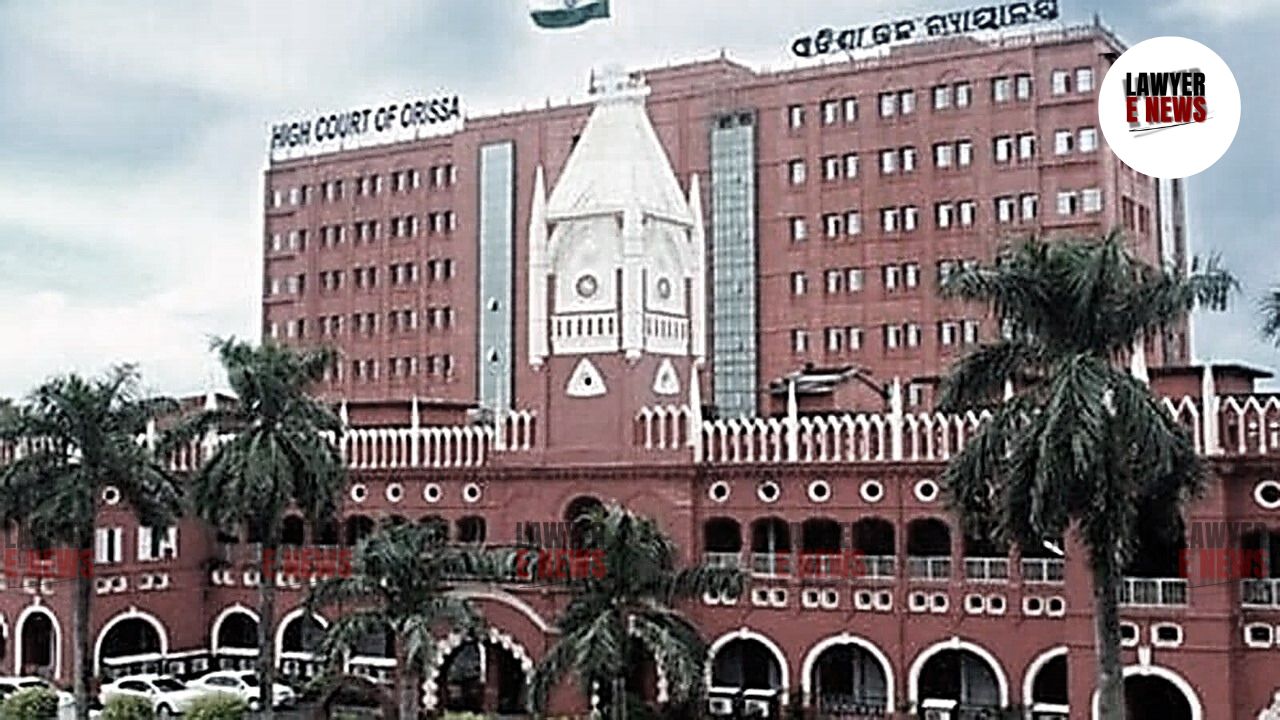-
by Admin
16 February 2026 1:47 PM



Employer Cannot Be Penalized for Delay If Payment Was Withheld Due to Audit Objections – In a significant ruling Orissa High Court dismissed a petition seeking interest on delayed gratuity payment, holding that no interest is payable if the delay was due to outstanding dues and audit objections against the employee. The Court ruled that Section 7(3-A) of the Payment of Gratuity Act, 1972, does not entitle an employee to interest if the delay was caused by their own liabilities and the employer had obtained proper approval for holding back the amount.
"Interest on delayed gratuity cannot be claimed when the payment was withheld due to legitimate audit objections and pending recoveries. The law protects employees, but it does not penalize employers for delays caused by the fault of the employee," the Court observed while rejecting the petition filed by Basanti Kar and others, legal representatives of a deceased employee of the Orissa Forest Development Corporation Ltd. (OFDC).
This ruling clarifies the legal position on gratuity payments, ensuring that interest liability does not arise when there is a valid justification for the delay in disbursement.
"Did the Employer Wrongly Delay Gratuity? High Court Examines the Legality of Withholding Payments"
The petitioners, legal heirs of a deceased OFDC employee, approached the High Court under Articles 226 and 227 of the Constitution, seeking interest on the gratuity amount that was delayed from the date of retirement until final payment.
During the proceedings, the petitioners modified their plea, restricting it to claiming interest alone, as the gratuity amount had already been paid during the pendency of the case. They argued that since gratuity was a statutory right, any delay in payment entitled them to interest under Section 7(3-A) of the Payment of Gratuity Act, 1972.
"Once gratuity becomes due, it must be paid promptly. Any delay attracts statutory interest, regardless of the reasons given by the employer," the petitioners’ counsel contended.
The OFDC, however, opposed the claim, asserting that gratuity payment was delayed due to audit objections and outstanding dues of ₹25,54,329 against the deceased employee, which were later reconciled and adjusted. The department sanctioned and disbursed the gratuity on April 15, 2019, but after adjustments, ₹77,977 was still recoverable from the deceased employee.
"Gratuity was withheld due to pending recoveries and audit objections. Since the delay was caused by financial irregularities linked to the employee, no interest can be imposed on the department," the corporation argued.
"When Can Interest Be Denied on Delayed Gratuity? High Court Interprets Section 7(3-A)"
The High Court examined the proviso to Section 7(3-A) of the Payment of Gratuity Act, 1972, which states that: "No such interest shall be payable if the delay in the payment is due to the fault of the employee and the employer has obtained permission in writing from the Controlling Authority for the delayed payment."
Analyzing the facts, the Court found that:
The gratuity was withheld due to financial irregularities and audit objections, which were later settled.
The employee had pending recoveries, which justified the delay in disbursement.
The employer acted within legal provisions and had valid reasons for holding back payment.
Rejecting the petitioners’ claim, the Court ruled that: "Interest is not an automatic entitlement in cases where payment is delayed due to the employee’s own outstanding liabilities. The petitioners’ demand for interest is legally unsustainable."
The Court further held that disputed financial recoveries cannot be decided in a writ petition, and any remaining claims regarding pending dues must be settled through proper administrative or legal channels.
"Employer Not Liable for Interest on Delayed Gratuity": High Court Dismisses Petition
Concluding its judgment, the High Court dismissed the petition, holding that there was no legal basis to impose interest on the employer.
"Since gratuity was withheld due to audit objections and pending recoveries, no interest can be claimed. The petition stands dismissed on contest, with no order as to costs," the Court ruled.
The judgment protects employers from unjustified interest claims, reaffirming that delays in gratuity disbursement due to financial irregularities and outstanding dues do not attract interest liability.
By ensuring that statutory provisions are applied fairly to both employees and employers, the Orissa High Court has set an important precedent for gratuity-related disputes.
Date of decision: 25/02/2025
